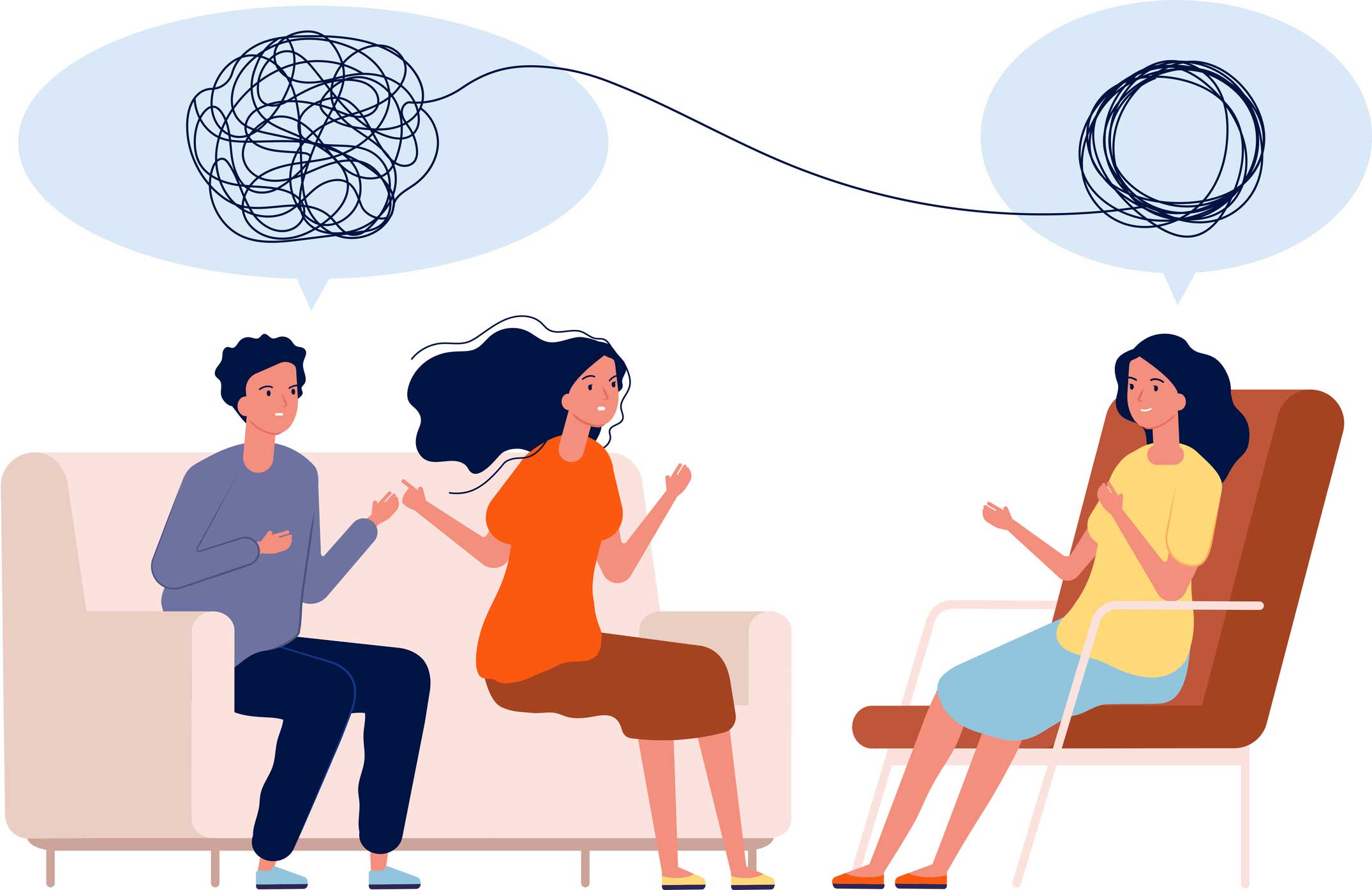Dr. Ellyn Bader is Co-Founder & Director of The Couples Institute and creator of The Developmental Model of Couples Therapy. Ellyn is widely recognized as an expert in couples therapy, and since 2006 she has led innovative online training programs for therapists. Professionals from around the world connect with her through internet, conference calls and blog discussions to study couples therapy.
Ellyn’s first book, "In Quest of the Mythical Mate," won the Clark Vincent Award by the California Association of Marriage & Family Therapists for its outstanding contribution to the field of marital therapy and is now in its 18th printing. She has been featured on over 50 radio and television programs including "The Today Show" and "CBS Early Morning News," and she has been quoted in many publications including "The New York Times," "The Oprah Magazine" and "Cosmopolitan."

 We respect your privacy.
We respect your privacy.




Have each partner tell you, while in the room with their partner, one way, that they really value, in which their partner is different from themselves and why they value that difference.
I sometimes talk about individual body-space, show it with my hands, and invite them to just recognize and feel their/our individual spaces and then the shared interactive space in the room–I then can coach them at different times to actively shift their attention to the different spaces. When a partner is over-focused on the other I might invite them to deliberately shift focus to her/himself, to go inside and see what his/her thoughts, feelings,wants are–separate from the partner.
Anne, your post reminded me of an exercise I’ve done in workshops that I think will work well with couples. Have each person partner up and stand facing their partner. The whole exercise is done in silence and is done slowly. Ask them to first become aware of their partner and how present they are to their partner. Then instruct them to notice what they are doing with their energy. Is it leaking out from them somewhere? Are they spraying it around the room? Are they wrapping it around their partner? Are they pushing their partner with it, trying to knock him or her off balance? Once they are aware of what they are doing with their energy, ask them to notice how present they are to their partner. Then invite them to draw their energy back into their body and to become really aware of themselves; really present to themselves; to have their energy fully contained within their body. Once they have contained their energy, ask them to again be aware of how present they are to their partner. Most people are surprised to discover that they are more present to their partner when they are first most present to themselves. It strikes me as a great metaphor for couples work – – that the partnership, as Ellyn has said many times, will be stronger when each person works on themselves, becomes more aware of themselves, etc.
Anne and Kathy-
I love the way you are making differentiation physical-and experiential in the room!
Ellyn
Thank you, Ellyn!
Related to my attachment post: My favorite method of getting at differentiation by attempting to minimize reactivity and seeing the self as separate is based on something I learned from Stan Dale… He called it a “candlelight heart share.”
Agree that what is said during the share will not be responded to in any way until at least the next day, and then only by appointment… Sharing is to be done in a dark place if you can, with lights out.
Using a large, clear, glass bowl, fill it half way with water and float a lit candle in the water. Put it between you. Set a timer for 10 minutes. Both stare at the candle the entire time, never looking at the speaker. Speaker talks freely for ten minutes. Listener does nothing but stare at the candle and stay awake. Timer goes off. Switch roles. End with some form of sacred acknowledgment, such as a hug, or prayer or blessing or whatever floats your boat (candle) :-), blow out the candle together and then go about your evening.
Russell – – I like all of the suggestions posted here, and I especially like your Candlelight Heart Share. Beautiful. Thanks for sharing.
You’re welcome. I also like all of the physical ways of getting at differentiation that others have shared.
Russell
Another differentiation-based intervention is to ask each partner to write down how they aspire to be during a difficult discussion. Ask them to seriously reflect on their higher self. Then decide who will initiate and who will inquire. Then ask each partner to define how they wish to think, feel and behave while being the role they have agreed to take.
Ellyn
One way to build differentiation is checking out our assumptions about the other. In this Gestalt exercise, the couple takes turns saying sentences beginning with “I assume that you_” for about five minutes. Then, they share their experience and check out their assumptions. I think, the process of discovering the extent to which their assumptions were correct or wrong (for the projector), and the process of correcting these assumptions (for the receiver) facilitate the couple’s move into differentiation.
Ümit
A good exercise to show differences can be to set up one partner in one corner of the room and the other opposite. Then have one partner very slowly approach and the other watch their own feelings and thoughts and reactions closely, so that they say stop immediately, when they start feeling uncomfortable and have the partner move back to the point, where it felt good.
Sometimes just getting either of them to share a point of view or to listen to their partner for a minute or two is a move toward differentiation. The Initiator-Inquiror process is a great way to expand upon that. I also use outlining their cycle to differentiate – “so for you, H, you start to think of X when you hear that, but for you, W, you have in mind something else completely. ”
Sometimes I aslo ask them, is it possible that both of you are right? Can there be room for both points of view?
And I point out when they learn something about their partner. “Ahh, so that’s something you didn’t know about him. What’s it like to see a new side of him?”
Pat
Peter demonstrated a way return to a grounded, comfortably safe state by using skills I had already developed in meditation. He had me start by identifying a safe state and then asking me to develop physical, auditory and mental cues to return to that state. We practiced the pathway back to that state in variously more confrontive situations. The key element was his connecting the meditative state with feeling safe, something I hadn’t realized before.
I am loving all of the suggestions. I am a current MFT student and I am trying to learn all I can.